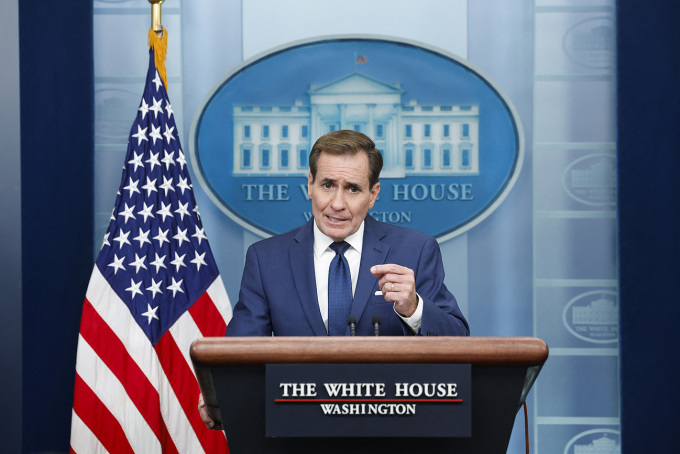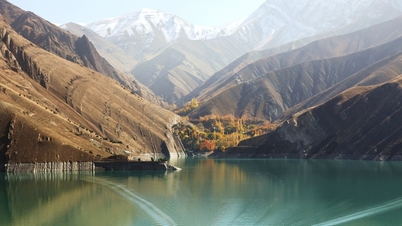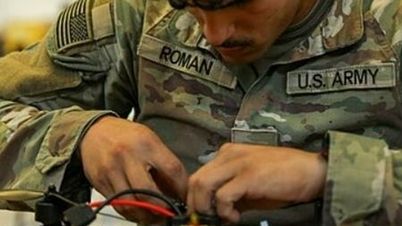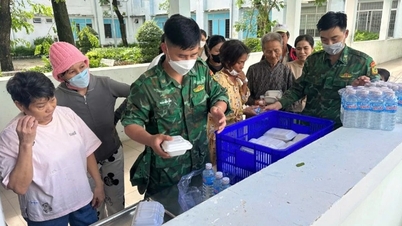The White House announced an airstrike on an arms depot in Syria to deter Iran-backed militia groups that were threatening to attack US troops in the region.
"The US airstrikes in Syria have had a real impact on the ability to supply arms to Iranian-backed separatist groups and send a strong signal of deterrence," US National Security Council spokesman John Kirby said on November 9. "These groups must make a choice. If they continue to attack our troops in Iraq and Syria, they will face consequences."

US National Security Council spokesman John Kirby at the White House on October 24. Photo: AFP
Kirby's comments came after US Defense Secretary Lloyd Austin said that on orders from President Joe Biden, two F-15 fighter jets on November 8 "conducted a defensive strike" against a weapons depot used by Iran's Islamic Revolutionary Guard Corps (IRGC) and its allies in eastern Syria.
"This is a retaliatory measure for a series of attacks targeting US soldiers in Syria and Iraq," Mr. Austin said.
US military bases in Iraq and Syria have been repeatedly attacked by drones or rockets since Hamas's attack on Israel on October 7. According to Pentagon statistics, at least 40 such attacks have occurred since October 17, injuring dozens of US soldiers and personnel.
An armed group called the Islamic Resistance Forces in Iraq has claimed responsibility for most of the recent drone and rocket attacks on US bases.
Iran is leading an “axis of resistance” in the Middle East to counter the US and Israel. This axis of resistance includes Hezbollah in Lebanon, Hamas in Gaza and various Islamist militias in Iraq and Syria. The US has carried out a number of retaliatory attacks against Iranian-backed forces in the region.
Iran denies involvement in attacks on US forces. Tehran's ambassador to the United Nations, Amir Saeid Iravani, said today that armed groups were responding to Israel's offensive in the Gaza Strip.
"That is the natural reaction of the resistance groups. It is also their own decision and course of action," Mr. Iravani said.
Kirby dismissed the Iranian ambassador's claim. "Those groups may have some degree of autonomy, but they are encouraged to carry out these attacks," Kirby stressed. "We know that the IRGC is directly involved in helping these groups make some of the decisions that they are making. In fact, the IRGC directs some of the attacks."
The US has about 2,500 troops in Iraq and about 900 in Syria. The risk of attacks on US forces has increased as the Pentagon deploys more weapons, vehicles and troops to the Middle East.
Huyen Le (According to Reuters )
Source link




![[Photo] Cutting hills to make way for people to travel on route 14E that suffered landslides](https://vphoto.vietnam.vn/thumb/1200x675/vietnam/resource/IMAGE/2025/11/08/1762599969318_ndo_br_thiet-ke-chua-co-ten-2025-11-08t154639923-png.webp)






































![[Video] Hue Monuments reopen to welcome visitors](https://vphoto.vietnam.vn/thumb/402x226/vietnam/resource/IMAGE/2025/11/05/1762301089171_dung01-05-43-09still013-jpg.webp)




































































Comment (0)